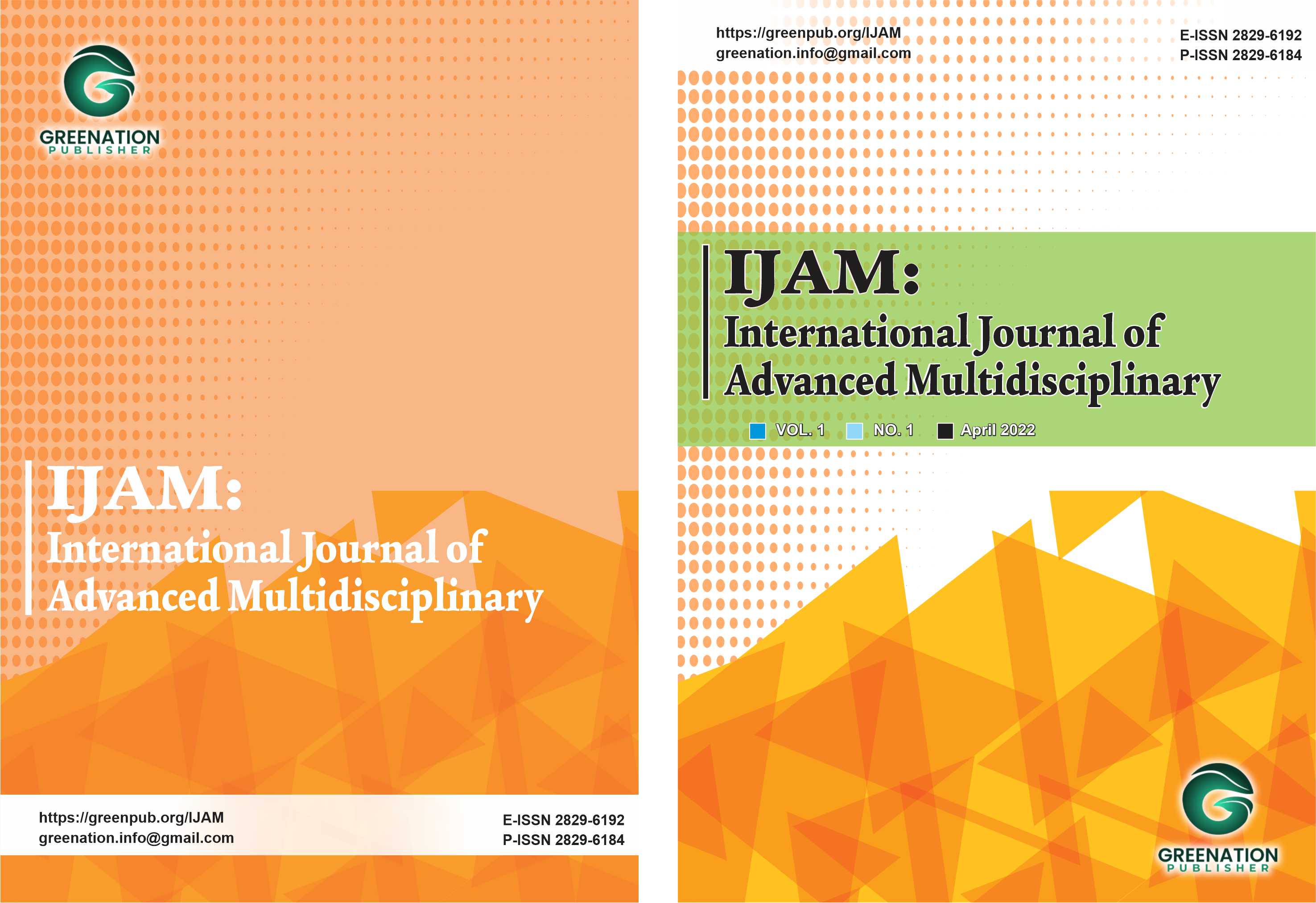Evaluation and Implementation of Safety Protocols for 600W Solar Panel Installation on University Buildings
DOI:
https://doi.org/10.38035/ijam.v4i2.1348Keywords:
Solar Installation, Safety Protocols, Risk Assessment, Job Safety Analysis, University BuildingsAbstract
The increasing adoption of renewable energy in universities presents opportunities for sustainable power generation but also introduces significant safety challenges, particularly during rooftop solar panel installations. Improper handling of structural and electrical requirements can result in falls, electrocution, fire hazards, and long-term operational risks. This study evaluates safety protocols for the installation of a 600W solar panel system on a university building. A Job Safety Analysis (JSA) was used to identify hazards across installation tasks, while a risk matrix ranked hazards by severity and likelihood. To strengthen safety implementation, a Safety Protocol Implementation Equation—Safety = Awareness × Preparation × Action—was developed, incorporating weighted factors such as training, equipment quality, compliance, and proactive reporting. A Job Safety Analysis (JSA) identified hazards such as falls, shocks, fire, and weather risks, recommending preventive measures like PPE, scaffolding, and proper wiring. A risk matrix was applied to rank hazards by severity and likelihood, prioritizing immediate controls for high-risk tasks. To systematize safety, a Safety Protocol Implementation Equation was developed: Safety = Awareness × Preparation × Action. Weighted factors, including training, equipment quality, compliance, and reporting, generate a measurable Safety Score, guiding effective, regulation-compliant solar installation.
References
Alanazi, A. (2023). Optimization of concentrated solar power systems with thermal storage for enhanced efficiency and cost-effectiveness in thermal power plants. Engineering, Technology & Applied Science Research, 13(6), 12115-12129.
Anderson, J. C., & Rex, D. K. (2023). Performing high-quality, safe, cost-effective, and efficient basic colonoscopy in 2023: advice from two experts. Official journal of the American College of Gastroenterology| ACG, 118(10), 1779-1786.
Brown, J. D. (2023). Risk & Resilience 4.0: Prevention Through Design (PtD) JSA Methodology Research (Doctoral dissertation, Capitol Technology University).
Feron, S. (2016). Sustainability of off-grid photovoltaic systems for rural electrification in developing countries: A review. Sustainability, 8(12), 1326.
International Labour Organization. (2019). Safety and Health at the heart of the Future of Work: Building on 100 years of experience. Retrieved 17/09/25 from https://www.ilo.org/publications/safety-and-health-heart-future-work-building-100-years-experience-0
Kishore, T. S., Kumar, P. U., & Ippili, V. (2025). Review of global sustainable solar energy policies: Significance and impact. Innovation and Green Development, 4(2), 100224.
Kruzhilko, O., Maystrenko, V., Polukarov, O., Kalinchyk, V. P., Shulha, A., Vasyliev, A., & Kondratov, D. (2020). Improvement of the approach to hazard identification and industrial risk management, taking into account the requirements of current legal and regulatory acts. Archives of Materials Science and Engineering, 105(2).
Kulor, F., Apprey, M. W., Agbevanu, K. T., Gasper, G. K., & Akorta, J. A. (2024). Invisible threats: An investigation of electrical hazards and safety practices among residential electricity consumers. Heliyon, 10(14).
Lord, J., Thomas, A., Treat, N., Forkin, M., Bain, R., Dulac, P., Behroozi, C.H., Mamutov, T., Fongheiser, J., Kobilansky, N. and Washburn, S., 2021. Global potential for harvesting drinking water from air using solar energy. Nature, 598(7882), pp.611-617.
Ohamobi, I. N., & Ezeaku, S. N. (2016). Students’ engagement variables as correlates of academic achievement in Economics in senior secondary schools in Anambra State, Nigeria. International Journal of Science and Research (IJSR), 5(11), 2319–7064.
Onyekazi, P. I., Ohamobi, I. N., Osegbue, G. C., Oguejiofo, C. S., & Anagor, N. A. (2024). Principals’ stress management techniques as correlates of teachers’ task performance in public secondary schools in Anambra State, Nigeria. Educational Administration: Theory and Practice, 30(5), 14776–14783.
Osegbue, G. C., Ohamobi, I. N., & Alordiah, C. O. (2025). Enhancing school safety and security: Developing and implementing effective protocols for a secured learning environment. African Journal of Social Behavioural Science, 15(2), 1018–1033.
Owusu, P. A., & Asumadu-Sarkodie, S. (2016). A review of renewable energy sources, sustainability issues and climate change mitigation. Cogent Engineering, 3(1), 1167990.
Ozobu, C. O., Onyekwe, F. O., Adikwu, F. E., Odujobi, O., & Nwulu, E. O. (2023). Developing a national strategy for integrating wellness programs into occupational safety and health management systems in Nigeria: A conceptual framework. International Journal of Multidisciplinary Research and Growth Evaluation, 4(1), 914-927.
Wang, J., & Zhao, C. (2023). Reducing carbon footprint in a resilient supply chain: examining the critical influencing factors of process integration. International Journal of Production Research, 61(18), 6197-6214.
Downloads
Published
How to Cite
Issue
Section
License
Copyright (c) 2025 Godspower Onyekachukwu Ekwueme, Ifeyinwa Faith Ogbodo

This work is licensed under a Creative Commons Attribution 4.0 International License.
Authors who publish their manuscripts in this journal agree to the following conditions:
- The copyright on each article belongs to the author(s).
- The author acknowledges that the International Journal of Advanced Multidisciplinary (IJAM) has the right to be the first to publish with a Creative Commons Attribution 4.0 International license (Attribution 4.0 International (CC BY 4.0).
- Authors can submit articles separately, arrange for the non-exclusive distribution of manuscripts that have been published in this journal into other versions (e.g., sent to the author's institutional repository, publication into books, etc.), by acknowledging that the manuscript has been published for the first time in the International Journal of Advanced Multidisciplinary (IJAM).






















